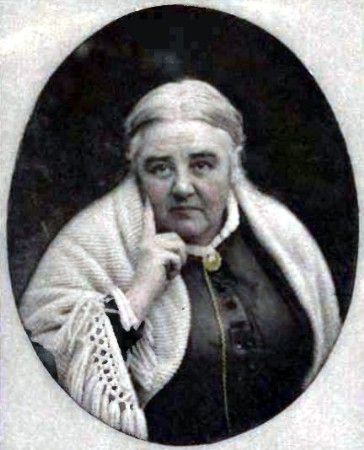
Sophia Louisa Jex-Blake
21 January 1840 – 7 January 1912
Physician & Feminist
Sophia Louisa Jex-Blake was an English physician, teacher and feminist. She was one of the first female doctors in the Britain, a leading campaigner for medical education for women and was involved in founding two medical schools for women, in London and in Edinburgh, where she also started a women's hospital.
Sophia Jex-Blake was born at 3 Croft Place Hastings, England daughter of retired lawyer Thomas Jex-Blake, a proctor of Doctors' Commons, and Mary Jex-Blake. Her brother was Thomas Jex-Blake, future Dean ofWells Cathedral. She attended various private schools in southern England and in 1858 enrolled at Queen's College, London, despite her parents' objections.
Jex Blake spent a few months studying with private tutors in Edinburgh. Elizabeth Garrett, whom Jex-Blake had met in London, was there applying to the University of Edinburgh Medical School. Garrett supported her in this frustrating effort, learning about the difficulties arising for aspiring women doctors from the provisions of the Medical Act 1858, before leaving to teach in Mannheim, Germany in 1862.
The following month Sophia Jex-Blake travelled to the United States to learn more about women's education. She visited various schools, was strongly influenced by developments in co-education in the USA and later published A Visit to Some American Schools and Colleges. At the New England Hospital for Women and Children in Boston she met one of the country's pioneer female physicians, Lucy Sewell. This was a turning point for Jex-Blake who then decided to train to become a doctor.
She found no English medical school which would accept women students, but persuaded Edinburgh University Medical School to admit her in 1869. Six other women joined Sophia Jex-Blake in Edinburgh – the first group of female medical undergraduates at a British university – though they had to fund their own segregated lectures. Despite having many supporters, they also encountered much opposition from lecturers, students and townspeople. Jex-Blake failed her final exams, perhaps because of time spent arguing the female students' cause, but she had by no means given up her plans. Not only did she help establish the London School of Medicine for Women in 1874, but she also continued campaigning and studying. A supportive MP, Russell Gurney, put forward an "enabling bill" which was passed by Parliament in August enabling, though not compelling, medical examining bodies to treat women candidates as they treated men. The first organisation to take advantage of the new legislation was the College of Physicians of Ireland, but before Jex-Blake applied to them, she passed the medical exams at the University of Berne where she was awarded an MD in January 1877. Four months later she had further success in Dublin and qualified as Licentiate of the King’s and Queen’s College of Physicians of Ireland (LKQCPI) meaning she could at last be registered with the General Medical Council, the third registered woman doctor in the country.
Jex-Blake returned to Edinburgh, established both a private practice and a dispensary for poorer patients in her Bruntsfield home. After the addition of in-patient facilities this became the Bruntsfield Hospital for Women. In 1886 set up the Edinburgh School of Medicine for Women. Women were allowed admission to Scottish universities in 1892.
Jex-Blake was the romantic partner of Dr Margaret Todd. Upon Jex-Blake's retirement in 1899, they moved to Windydene, Mark Cross, Rotherfield where Jex-Blake died on 7 January.
To make your own nomination download the nomination form here